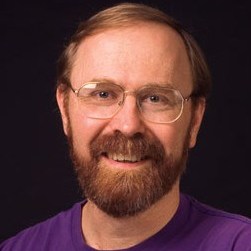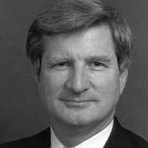Wednesday, January 29, 2014
2:00 pm – 3:30 pm Eastern, 11:00 am – 12:30 pm Pacific
Register Here
Co-sponsored by Gordon and Betty Moore Foundation,
The Independent Council for Safe Energy Fund, and The Lia Fund

As we approach the third anniversary of the March 2011 Japan earthquake and tsunami, many consider the damage and devastation ‘old news.’ But the recovery from this terrible disaster is far from over, even as assistance, aid, and attention subside. Join the Council and the Environmental Grantmakers Association for an important webinar on January 29, 2014 from 2:00 – 3:30 pm Eastern that will update the philanthropic community on the recovery from this disaster and outline the lasting environmental damage and effects that continue to face Japan.
Background on the Continuing Fukushima Disaster
The earthquake and tsunami have created an ongoing nuclear disaster, as ground water has been contaminated from the melted cores at the Fukushima Daiichi nuclear power plant. Hundreds of metric tons of contaminated water flow daily from the reactor cores. And while efforts are underway to "decontaminate" thousands of gallons of contained water so that it may be safely released, poorly constructed storage tanks continually leak contaminated water directly into the Pacific Ocean. Further radioactive fallout was released into the atmosphere by explosions at the reactor sites, and more than 80% of these radioactive particles will fall into the Pacific. It is predicted that ocean currents will carry the contaminated plume to the West Coast of North America by early 2014.
Public confidence has been shaken as the plant operator, Tokyo Electric Power Company (TEPCO), has struggled to keep up with the crisis. TEPCO and the Japanese government have publicly maintained that the crisis is under control. But those public statements are contradicted by conditions on the ground. The 2020 Olympics are still planned for Tokyo, but a newly passed secrecy act may prevent the dissemination of accurate information about the take-down of spent fuel rods in a key portion of the plant and the release of “decontaminated” water into the ocean. Only independent scientific study can assure the world that Fukushima does not continue to threaten the safety of our planet.
Continuous monitoring is needed from Alaska to coastal Mexico to establish baseline levels of radiation and to rigorously track levels as the contaminated plume approaches the American West Coast. The fallout from this disaster threatens to expand far beyond Japan. There are concerns that radionuclides – like cesium and strontium – are impacting our fisheries, marine life, and human populations. Computer models predict that the diluted radioactivity will have little impact on the West Coast of North America and Hawaii, but actual scientific monitoring is needed to know for sure. Because of budget constraints, federal agencies are not stepping forward to fund the research, and scientists will rely on support from other funders to carry out their work.
Join us Wednesday, January 29th, as we discuss these challenges
This discussion will provide you with the latest information about recovery efforts and give you the chance to ask our guest presenters questions during a funders-only discussion of the continuing challenges. We hope you can join us as we delve into this critically important issue.
Visit the Environmental Grantmakers Association Website to learn more and register.
Agenda for January 29th
Welcome
Andrew Ho, Network Developer, Global Philanthropy, Council on Foundations
Moderator
Scott Denman, Project Director & Philanthropic Advisor, Independent Council for Safe Energy Fund
Speakers
 Ken Buesseler, Ph.D., Senior Scientist at Woods Hole Oceanographic Institution. Dr. Buesseler is uniquely qualified to direct Fukushima ocean water monitoring projects. As a young scientist, he monitored radiation levels in the Black Sea after the 1986 Chernobyl nuclear disaster. After the Fukushima 2011 earthquake and tsunami, he obtained a $4 Million grant from the Gordon and Betty Moore Foundation to fund a research expedition cruise with 17 other scientists to monitor the radiation offshore at Fukushima, and has made the results available for academic and public audiences. He founded and is Director of the Center for Marine and Environmental Radioactivity (CMER). He has recently started working with the Scripps Institution of Oceanography in Southern California to monitor West Coast radiation levels.
Ken Buesseler, Ph.D., Senior Scientist at Woods Hole Oceanographic Institution. Dr. Buesseler is uniquely qualified to direct Fukushima ocean water monitoring projects. As a young scientist, he monitored radiation levels in the Black Sea after the 1986 Chernobyl nuclear disaster. After the Fukushima 2011 earthquake and tsunami, he obtained a $4 Million grant from the Gordon and Betty Moore Foundation to fund a research expedition cruise with 17 other scientists to monitor the radiation offshore at Fukushima, and has made the results available for academic and public audiences. He founded and is Director of the Center for Marine and Environmental Radioactivity (CMER). He has recently started working with the Scripps Institution of Oceanography in Southern California to monitor West Coast radiation levels.
 Thomas B. Cochran, Ph.D., a health phyicist, will discuss the risk of low dose radiation. Consultant to (and former Director of) the Nuclear Program of the Natural Resources Defense Council (NRDC). After the Fukushima nuclear disaster, he testified before the Joint Hearings of the Subcommittee on Clean Air and Nuclear Safety and the Committee on Environment and Public Works of the United States Senate, Washington, DC. Dr. Cochran and Dr. Matthew McKinzie made preliminary estimates of the collective radiation dose from external exposure based on radiation monitoring data from Japan. He has served as a consultant to numerous government and non-government agencies on energy, nuclear nonproliferation, nuclear reactor and nuclear waste matters. For more than three decades, Dr. Cochran has been a key international leader for the control of fissile materials and the prevention of nuclear proliferation.
Thomas B. Cochran, Ph.D., a health phyicist, will discuss the risk of low dose radiation. Consultant to (and former Director of) the Nuclear Program of the Natural Resources Defense Council (NRDC). After the Fukushima nuclear disaster, he testified before the Joint Hearings of the Subcommittee on Clean Air and Nuclear Safety and the Committee on Environment and Public Works of the United States Senate, Washington, DC. Dr. Cochran and Dr. Matthew McKinzie made preliminary estimates of the collective radiation dose from external exposure based on radiation monitoring data from Japan. He has served as a consultant to numerous government and non-government agencies on energy, nuclear nonproliferation, nuclear reactor and nuclear waste matters. For more than three decades, Dr. Cochran has been a key international leader for the control of fissile materials and the prevention of nuclear proliferation.



